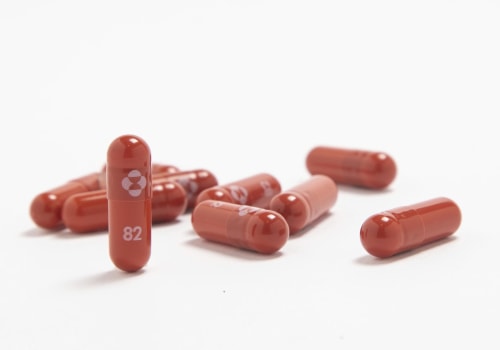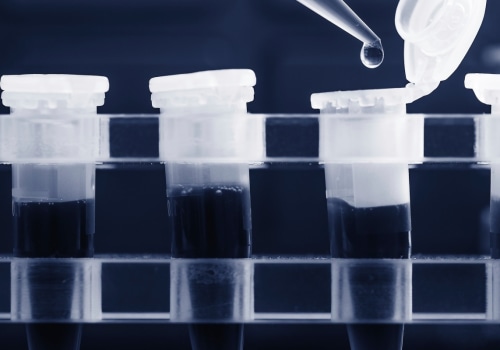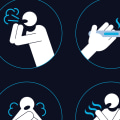Genital herpes is an incredibly common and highly contagious virus that can cause a variety of symptoms, including painful outbreaks of blisters on the genitals. While genital herpes is typically not life-threatening, it can lead to uncomfortable symptoms and can even cause serious complications if left untreated. In this article, we will be exploring the potential complications of genital herpes infection, and how individuals can protect themselves from these potential issues. We will also discuss the various treatments that are available for those who have been infected with this virus.
By understanding the potential complications of genital herpes infection, individuals can take steps to protect their health and well-being. Genital herpes is a sexually transmitted infection (STI) caused by the herpes simplex virus (HSV). It is estimated that one in eight people between the ages of 14 and 49 have genital herpes. Although there is no cure for genital herpes, it is important to understand the potential complications of the infection in order to prevent them.
The psychological effects of genital herpes infection can be severe. These can include depression, anxiety, fear, and embarrassment. People with genital herpes may feel isolated and ashamed, which can lead to social withdrawal. It is important for people with genital herpes to seek support from friends and family, as well as mental health professionals.
In addition to psychological effects, there are also physical complications associated with genital herpes infection. Recurrent outbreaks of genital herpes can cause pain and discomfort. During pregnancy, women with genital herpes may be at increased risk of transmitting the virus to their baby, which can cause serious complications. Additionally, people with genital herpes may be at increased risk of acquiring other STIs.
In order to prevent transmission of genital herpes and outbreaks, it is important to practice safe sex. Avoiding sexual contact during an outbreak will reduce the risk of transmission to a partner. Using condoms or other barrier methods during sexual activity can also help reduce the risk of transmission. Additionally, antiviral medications can be used to reduce the frequency and severity of outbreaks.
It is important for people with genital herpes to seek treatment in order to reduce the risk of complications associated with the infection. Antiviral medications can be used to reduce the frequency and severity of outbreaks, and can help reduce the risk of transmitting the virus to a partner. Additionally, people should practice safe sex in order to prevent transmission and outbreaks. People who are concerned about the psychological effects of genital herpes should seek support from friends and family, as well as mental health professionals.
Psychological Effects
Genital herpes infection can have a significant psychological impact on those infected.Symptoms such as itching and burning can lead to feelings of shame, guilt, and embarrassment. In addition, people living with genital herpes may experience depression, anxiety, and fear about the disease and its potential complications. It is important to understand how these psychological effects can be managed. Talking to a healthcare provider or mental health professional can be an important step in managing the psychological effects of genital herpes infection. These professionals can provide emotional support, help in understanding the physical and emotional changes associated with the infection, and provide resources for coping with the stigma surrounding genital herpes. It is also important to remember that genital herpes is a common infection and that there are effective treatments available to manage its symptoms. Symptoms such as itching and burning can lead to feelings of shame, guilt, and embarrassment. In addition, people living with genital herpes may experience depression, anxiety, and fear about the disease and its potential complications. It is important to understand how these psychological effects can be managed. Talking to a healthcare provider or mental health professional can be an important step in managing the psychological effects of genital herpes infection. These professionals can provide emotional support, help in understanding the physical and emotional changes associated with the infection, and provide resources for coping with the stigma surrounding genital herpes. It is also important to remember that genital herpes is a common infection and that there are effective treatments available to manage its symptoms.
Education about the infection and its transmission can help reduce the fear and stigma associated with it. Support groups, both online and in-person, can also be beneficial for those living with genital herpes. Finally, self-care is an important part of managing the psychological effects of genital herpes infection. This includes getting enough sleep, eating a balanced diet, exercising regularly, and practicing relaxation techniques such as yoga or mindfulness meditation. With proper treatment and support, those living with genital herpes can lead healthy, fulfilling lives.
Treatments
The primary goal of treatment for genital herpes infection is to reduce the duration and severity of symptoms, as well as to prevent the spread of the virus to other people.Depending on the severity of the infection, treatment may include medications to reduce symptoms and speed up recovery, as well as lifestyle changes to reduce the risk of transmitting the virus. Antiviral medications, such as acyclovir, valacyclovir, and famciclovir, can be prescribed to reduce the symptoms of genital herpes. These medications can help to reduce the duration and severity of the infection, as well as reduce the risk of transmission. It is important to note that these medications do not cure herpes, but can help to reduce symptoms and speed up recovery.
In addition to antiviral medications, other treatments may be recommended depending on the severity of the infection. For example, topical creams may be prescribed to reduce pain and inflammation. Over-the-counter pain medications such as ibuprofen and acetaminophen can also be used to manage pain. In addition to medical treatments, there are also lifestyle changes that can help reduce the risk of transmitting the virus.
This includes practicing safe sex, such as using condoms during sexual intercourse and avoiding contact with sores or blisters. It is also important to avoid sharing towels, clothing, or other personal items with someone who has an active infection. Finally, it is important to practice good hygiene by washing your hands regularly and avoiding contact with infected areas. It is also important to get regular check-ups with your doctor in order to monitor for any potential complications.
Physical Effects
Genital herpes is an infection caused by the herpes simplex virus (HSV). While there is no cure, it is important to understand the potential physical effects of the infection. Common physical effects of genital herpes can include:- Painful sores or blisters in the genital area
- Pain in the legs, buttocks or thighs
- Flu-like symptoms, such as fever, body aches and swollen lymph nodes
- Itching or burning in the genital area
It is important to seek medical attention if these symptoms are present, as they may be indicative of a more serious complication. While there is no cure for genital herpes, it is possible to manage the physical effects of the infection. Treatment options may include antiviral medications to reduce the frequency and severity of outbreaks, as well as topical ointments to reduce pain and discomfort. It is also important to practice safe sex to prevent transmission of the virus.
Prevention
Genital herpes is a highly contagious infection that can be spread through unprotected sexual contact.The best way to prevent the transmission of genital herpes is to practice safe sex, such as using condoms and avoiding contact with any sores or lesions. It is also important to get tested for STIs regularly and to disclose your status to any potential partners. Additionally, it is important to take medication as prescribed by your doctor, as this can reduce the risk of transmitting the virus to others. The likelihood of experiencing outbreaks of genital herpes can be reduced by avoiding triggers that may cause flare-ups. Common triggers include stress, fatigue, and certain medications, so it is important to manage stress levels and get enough sleep, as well as avoid any drugs that may exacerbate symptoms.
Additionally, some people find that taking certain supplements can help reduce the frequency of outbreaks. Finally, keeping the genital area clean and dry may reduce irritation and discomfort associated with outbreaks. Genital herpes is a serious health condition that can have long-term psychological and physical effects if left untreated. It is important to take steps to prevent transmission and outbreaks, such as avoiding sexual contact during an outbreak and using condoms. There are also treatments available for those who are infected with genital herpes.
By understanding the potential complications of genital herpes infection and taking the necessary steps to prevent transmission and outbreaks, people can reduce their risk of long-term health problems.






